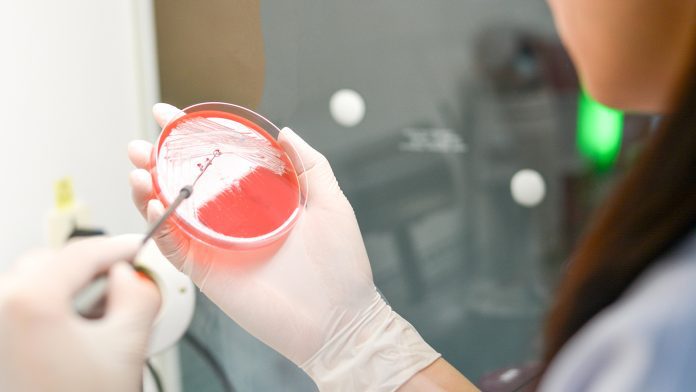
Scientists are set to harness the potential of food by-products to manufacture antimicrobial drugs from bacteria.
In a collaborative effort led by the University of Strathclyde, conducted in partnership with the University of Surrey and GSK, this pioneering research aims to revolutionise the production of antimicrobials, making it more cost-effective and sustainable while addressing the global challenge of antimicrobial resistance.
The project, funded by a nearly £1.1m grant from the UKRI Technology Missions Fund, supported by the Biotechnology and Biological Sciences Research Council (BBSRC), seeks to transform antimicrobial drug production into a less carbon-intensive process.
By utilising food by-products, typically discarded, the researchers aim to create a more environmentally friendly approach to biomanufacturing.
Addressing antimicrobial resistance
Antimicrobial resistance poses a significant threat to public health, with nearly five million deaths worldwide attributed to it annually.
The World Health Organization warns that without intervention, the economic toll of antimicrobial resistance could reach a staggering $100tr by 2050. Therefore, developing sustainable solutions to combat this crisis is of paramount importance.
Professor Paul Hoskisson, lead researcher at the Strathclyde Institute of Pharmacy and Biomedical Sciences, emphasised the urgency of the situation: “There is an urgent need to develop new antimicrobial drugs for the clinic and to improve the production of existing antimicrobials. Our approach will pave the way for greener manufacturing processes that do not compete with the food chain.”
Engineering novel antimicrobial drugs
Central to the project is the use of engineering biology approaches to optimise antimicrobial-producing bacteria’s metabolism for utilising food by-products.
Unlike current methods that rely on expensive, food-grade feedstocks, this innovative approach aims to repurpose waste materials without compromising the production of vital drug molecules.
Expanding applications
The implications of this research extend beyond antimicrobial drugs. Streptomyces bacteria, known for their ability to produce various beneficial compounds, could potentially yield anti-parasitic, anti-cancer, anti-fungal, and immunosuppressant drugs through similar processes.
This versatility promises a wide range of applications, contributing to advancements in multiple fields of medicine.
Professor Claudio Avignone Rossa, Professor of Systems Microbiology at the University of Surrey, commented: “Antimicrobial resistance is a worldwide threat to public health. Pathogens that have become resistant to antibiotics can limit our ability to treat common infections and deliver other lifesaving treatments such as chemotherapy.
“Antimicrobial drugs are available; however, their development and production are costly. It is important that we think innovatively and use our knowledge of bacterial metabolism to overcome this problem.”
By repurposing food by-products for drug production, scientists are not only creating a more sustainable future but also innovating medications that can save lives.










